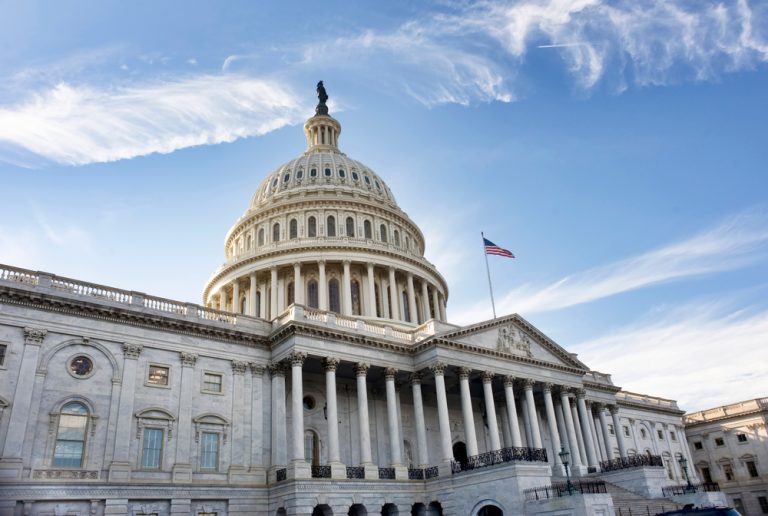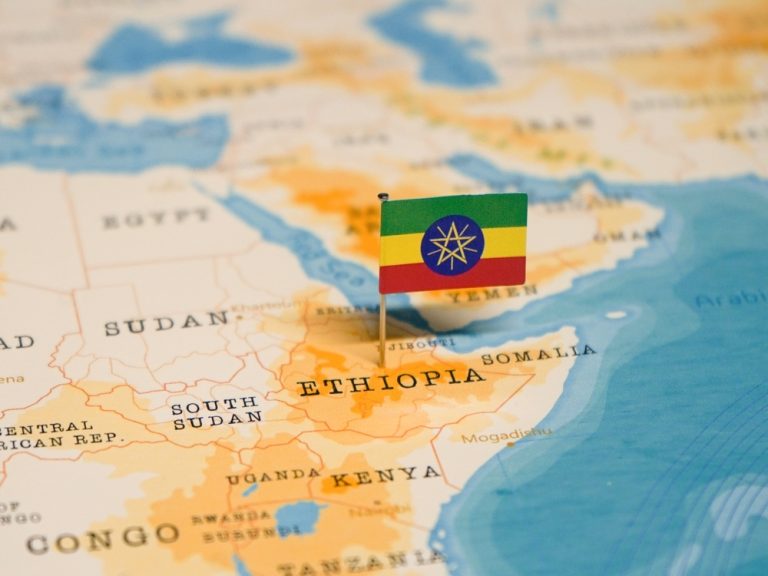
Upcoming elections in Taiwan escalate China-U.S. confrontation in the region
On January 13, 2024, Taiwan will hold a presidential election, which will be of key importance in resolving the crisis that has been going on around the island for almost 2 years. The main confrontation will be between the three main candidates from the country’s three major parties. Prime Minister Lai Ching-te of the ruling Democratic Progressive Party favors a strong alliance with the United States and an implacable confrontation with Beijing, seeing Taiwan as an “unsinkable U.S. aircraft carrier” off China’s coast and a key link in the U.S. “containment zone” of their main geopolitical adversary. Ko Wen-jae of the Taiwan People’s Party takes the position of maintaining the status quo with China, which is not so favorable for Washington, and will not allow the Americans to use the island for military purposes and withdraw microchip production from its territory. Finally, Hou Yu-ih of the Kuomintang Party is an advocate of consistent integration with mainland China, which threatens the U.S. with great political losses. Now the forces of the opposing sides are approximately equal, and the main pre-election events are taking place right now. However, this causes another aggravation of the U.S.-Chinese confrontation over the fate of the island.
In late July, Taiwan held a large-scale exercise simulating an invasion by mainland China. The Taiwanese army feared that China would stage a major landing operation, sending Special Forces to take control of the island’s largest airport, Taoyuan. China responded to the exercise by sending another 29 aircraft, including fighter jets, bombers, and drones toward Taiwan. The frequency of Chinese military flights around the island has been increasing month by month, and the Middle Kingdom has been deploying its hypersonic missiles in Taiwan’s vicinity, which have a flight time of only 6-8 minutes to reach military facilities on the island. The UK Defense Academy believes that a potential military operation could begin with the occupation of Kinmen Island, the closest island to China. Taiwan would declare a naval blockade, leading to the collapse of the island’s economy, which is dependent on food and energy imports. And then China will send Special Forces to occupy critical facilities in Taipei, hoping to achieve the rapid fall of the Taiwanese regime through a “shock and awe” effect. Only 30% of Taiwanese believe that a military operation on the island is inevitable. But the ruling forces are in every possible way fueling the militaristic hysteria by massively purchasing American weapons and conducting demonstrative exercises, which only increases the likelihood of a military scenario. At the same time, arms deliveries from the U.S. are delayed for years in advance, and Taiwan is still unable to receive either new F-16 fighter jets or Patriot air defense systems, and this is unlikely to happen before the January elections, after which they can be frozen already from the Taiwanese side in case of an unsuccessful outcome for the Americans.

Against this backdrop, a new conflict between China and the United States erupted in mid-August over Taiwanese Prime Minister Lai Ching-te’s visit to America. For him, it was a kind of viewing before the upcoming elections in Taiwan. After all, Lai Ching-te is a candidate of the ruling Democratic Progressive Party, and he is an even bigger supporter of Taiwanese separatism than the current President Tsai Ing-wen. Lai Ching-ta could not come to Washington, D.C., because Taiwanese officials are forbidden to appear there because of the U.S. government’s failure to recognize Taiwan’s independence. But he came to New York and then traveled to Paraguay, one of Taiwan’s last allies, before ending his tour in Los Angeles. There he met with congressmen, trying to persuade them to redirect Ukrainian tranches to Taiwan. Once in New York, Lai Ching-te immediately called him “an icon of freedom, democracy, and opportunity”. However, Americans themselves have not considered New York as such for a long time, which is why the population is leaving the city in droves, fleeing from crime, exorbitant taxes and culture wars. The situation in the city is difficult: streets of New York are full of homeless people, drug addicts and illegal immigrants, who simply have nowhere to live. However, Lai Ching-te is far from American realities, and his goal was to please his sponsors from the Democratic Party.
In the end, the scandalous tour of Taiwan’s Vice Presidential running mate and presidential candidate for the upcoming elections, Lai Ching-te, through the New World ended in fiasco. The Central American parliament stripped Taiwan of its permanent observer status and handed it over to China. The number of countries recognizing Taiwan has already dropped from 22 to 13, and Honduras recently severed diplomatic relations with Taipei. The tour has also led to increased pressure from China, and the country has closed its market for Taiwanese mangoes, although it used to be one of the few agricultural exports that was active in mutual trade with China. In a similar fashion, Beijing had already banned imports of Taiwanese pineapples and fish in 2022. The current prohibitive measures are also an attempt to influence the outcome of the upcoming elections in Taiwan. China is actively luring representatives of opposition parties and hinting to the Taiwanese that if the anti-Chinese forces are defeated, all economic ties can be restored. Taiwan is already in recession due to capital outflows amid the threat of war and a slump in demand for chips. Not surprisingly, the ruling Democratic Progressive Party continues to whip up militaristic hysteria, and happily announced the delivery of the first batch of tanks in 2024. We are talking about 38 tanks of the latest modification, because unlike Ukraine, Taiwan is paying for them out of its own pocket. However, they were ordered in 2019, and Taipei started receiving them with a four-year delay. The situation is similar with F-16 fighter jets and missiles, because the U.S. military-industrial complex is overloaded with logistical problems and the need to serve Ukraine’s needs, so delivery dates are pushed back for years. The armaments that are going to Taiwan will not even be close to enough in case of war with China. That is why the island’s authorities are hoping for the intervention of Japan and South Korea, which are also being prepared for war. But whether they will retain power after the elections is still a big question.

In the economic sphere of relations with the U.S., things are not going well either, and a real conflict is brewing in Arizona over the construction of a TSMC chip factory. The Taiwanese wanted to launch the factory in 2024, but the deadline has already been pushed back indefinitely. TSMC management blames American workers and the American side points to the incompetence of the Taiwanese. TSMC now wants to bring in workers from Taiwan, and is asking for visas. But Arizona labor unions are strongly opposed to bringing in cheap labor. Workers have faulted TSMC for not having normal plans for building the factory and they often have to guess what is required of them. In addition, there are blatant violations of safety rules and all construction regulations at the construction site. The Arizona authorities have already had to intervene in the matter, demanding that TSMC comply with U.S. construction rules. Workers do not advise anyone to be in this factory after the construction is completed. After all, everything there will immediately begin to fail, and work in such a factory will be simply dangerous to life. Construction crews also refuse to sign documents on commissioning of the facility due to violation of all regulations. At the same time, the White House had high hopes for the TSMC plant in Arizona. Biden’s team wanted to move all engineers there in case of war around Taiwan and continue to produce chips for the U.S. market. However, it is now unclear when this factory will be completed and whether it will produce anything at all. Another factory TSMC wants to build in Germany, but even there its construction is under great doubt against the background of the energy crisis and deindustrialization of the German economy. To improve the situation, Berlin promised to give Taiwanese subsidies for €5 billion. In the U.S., TSMC is asking for as much as $15 billion in grants. So, the plant may not appear at all, and the whole event will be reduced to embezzlement of Taiwanese and American budget funds.
To somehow shore up the melting loyalty of the Taiwanese, in early September the U.S. held a secret exercise with the Taiwanese army in Michigan. A total of 7,000 Taiwanese soldiers were deployed to the Midwest, to be picked up by the state’s National Guard. Washington purposely did not involve the regular army in order not to inflame the situation in the moment, although the same scheme with the use of the National Guard was used in training Ukrainians since 2014. At the same time, the first joint U.S.-South Korea exercises in 10 years took place in the Yellow Sea, and Japan, which has joined the U.S.-South Korea alliance against China, accepted a record military budget of $53 billion dollars to buy U.S. missiles and fighter jets. Taiwan, for its part, will receive arms from the U.S. for the first time under a program designed for sovereign nations. Taipei apparently fears the defeat of the incumbent government in elections next January, and realizes that this will lead to reconciliation with China. Under these circumstances, the “war party” is eager for a clash, and is preparing to hastily build 220 military medical facilities on the island at once for blood storage and emergency operations. And recently, Taiwan’s largest metropolitan airport held exercises to repel the landing of Chinese paratroopers, about which we have already written above. Anti-Chinese pressure groups in the U.S. are already actively preparing for a scenario of war in Taiwan in 2024. China is also preparing for this, concentrating its navy around Taiwan and deploying hypersonic missiles. The January elections will be in many ways the moment of truth, because in the event of war, Taiwan will become a blazing battlefield. In addition, the entire world economy would suffer, left without the most advanced chips. However, the defeat of the current militaristic power in Taiwan leaves a chance for peace and “salvation” for all.

